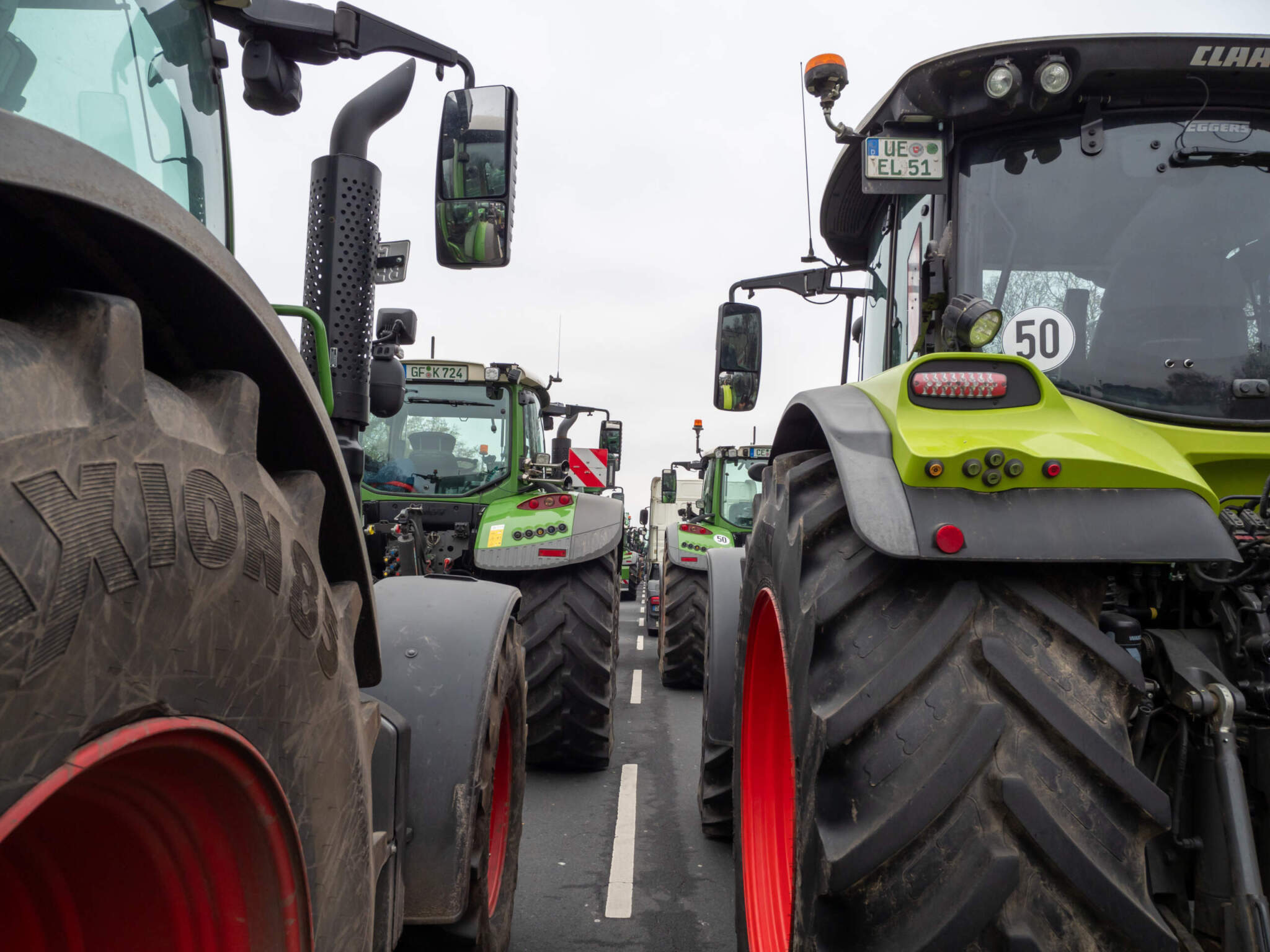For Immediate Release: January 10, 20234
Contact: R-CALF USA CEO Bill Bullard
Phone: 406-252-2516; r-calfusa@r-calfusa.com
Please find below R-CALF USA’s weekly opinion/commentary that discusses the implications of farmer protests around the world. It is in three formats: written, audio and video. Anyone is welcome to use it for broadcasting or reporting.
In Case You’re Missing It
Commentary by Bill Bullard, CEO, R-CALF USA
I hope you’re not missing this. We’re standing at the precipice of a major upheaval and many of our nation’s leaders have yet to understand what’s going on. So, let’s look at what’s going on.
One can arguably say it started about three years ago, in India. There, the government had been providing price supports for farmers, protecting them from the abuses of large corporations that threatened to take control of the markets if those price supports were eliminated. And that’s what India’s government proposed to do – to eliminate the price supports for farmers and allow the corporations agribusinesses to control the markets. Given the dominance of large agribusinesses over India’s agricultural markets, the threat of collusion and market manipulation was cited as the reason India’s farmers began protesting en masse. It’s estimated that 200,000 tractors and 250 million people took part in India’s months-long protests.
Then two years ago the Dutch government began blaming its farmers for polluting the atmosphere. It issued a directive to cut emissions from farming by 50% by 2030. To accomplish this, the Dutch government is attempting to eliminate farmers. Reports indicate the Dutch government wants to reduce livestock production eliminating thousands of farms and reducing the production of livestock from even more farms. In response, Dutch farmers began protesting against their government en masse.
Last year, protests sprang up in France where farmers complained of higher fuel prices, higher taxes, and climate and agricultural policies. And last year, the government of Ireland reportedly announced it would reduce Ireland’s cow herd by 200,000 cows to meet climate goals.
And right now there’s a huge farmer protest going on in Germany. The farmers there claim their operating costs, particularly fuel prices, have skyrocketed and their government is intending to end or reduce the price supports that farmers there receive and to increase taxes upon them. You see, like in India, the large corporations that dominate the food industry are poised to take control over the markets, leaving farmers with markets that won’t cover their costs of production and no subsidy to make up the difference. German farmers are now protesting during their “Week of Action,” which may actually last for many weeks, as they vow to continue until their government listens to them.
World leaders and some media label all these farmers as right-wing extremists. But are they? They’re not protesting over some ideology; they’re protesting over their inability to stay in business. This suggests these farmers are pragmatists, if not realists. The German mantra is “No Farmers, No Food, No Future.”
So, what can we learn from this unprecedented swell of farmer protests that appears to be spreading at an accelerated pace around the world?
Well, first and foremost we need national leaders to say: “Houston, we have a problem.” Unsurprisingly, however, that hasn’t happened.
The reason national leaders don’t recognize there is a problem is because they stopped listening to farmers and ranchers decades ago. You see, the multinational agribusiness corporations operating here and abroad have positioned themselves to be the surrogate voice of farmers and ranchers. They infiltrated all the conventional commodity groups for cattle, hogs, sheep and chicken to ensure that these so-called producer groups support their economic interests, not the interests of actual farmers and ranchers.
And these agribusiness conglomerates have convinced our national leaders that what is good for them is also good for the farmers and ranchers from whom they extract their raw products.
So, let’s identify the problem ourselves. The problem is that farmers and ranchers have unwittingly allowed themselves to be controlled by their respective governments and by the multinational agribusinesses that have become so big and so powerful that they’re able to speak through governments with their unprecedented political influence.
As evidenced by the protests in India and Germany, the farmers have grown dependent on government subsidies for their survival, and the loss of those subsidies would make them vulnerable in the marketplace that’s controlled by the multinational agribusinesses.
In the case of the French, Dutch, and Irish farmers, they’re controlled by their respective governments that view them as the low hanging fruit, easy targets for which to begin implementing arbitrary climate goals.
Farmers and Ranchers must break free of the controls that allow governments and multinational agribusinesses to weaponize food policies that give them, and not the farmers and ranchers, control over food production, and the public needs to help them do that. There’s nothing more dependable than a fully competitive marketplace where the government’s role is limited to protecting against antitrust and anticompetitive behavior. In such a marketplace, there will be thousands more farmers and ranchers producing what the consuming public wants and needs, and they’ll be paid a competitive price for their efforts.
So, let’s change Germany’s mantra to: More Farmers, More Food, and a Better Future.
###
R-CALF USA’s weekly opinion/commentary educates and informs both consumers and producers about timely issues important to the U.S. cattle and sheep industries and rural America.
Ranchers Cattlemen Action Legal Fund United Stockgrowers of America (R-CALF USA) is the largest producer-only trade association in the United States. It is a national, nonprofit organization dedicated to ensuring the continued profitability and viability of the U.S. cattle and sheep industries. For more information visit www.r-calfusa.com or call (406) 252-2516.






